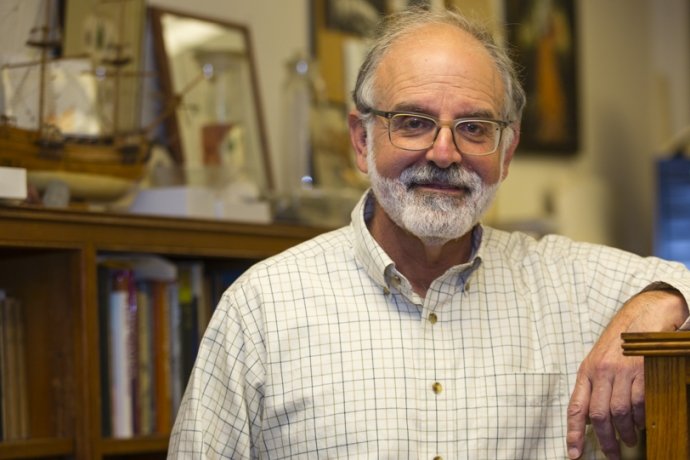Stan Rachootin
- Professor Emeritus of Biological Sciences

Are there factors that predispose organisms to change in certain directions and not in others? Can slight differences between structures shed light on the processes that make those structures? Questions about the complexities of biological form and evolutionary change have long fascinated Mount Holyoke biologist Stan Rachootin, who teaches introductory biology, evolution, Darwin, macroevolution, and invertebrate zoology.
Winner of Mount Holyoke College's Faculty Prize for Teaching in 2004, his latest project is working out a new format for introductory biology, in which the topics and styles of thinking are new for all of the students in the class, whatever their previous experience in science. His version uses the biodiversity present on the campus as its principal text.
In addition to pursuing his own research on the history of evolution and the links between evolution and development-his publications include articles in The Darwinian Heritage and Evolution Today-Rachootin has supervised honors theses that have studied structures and relationships in cnidarians, segmented worms, molluscs, arthropods, and vertebrates. Recent student theses include a link between asexual reproduction and segmentation, the
evolution of flatfishes, geometrical analysis of shells of closely related species of snails, and the wing of an extinct midge that incorporated the patterning of the surface of its eye.
Rachootin is president of the Mount Holyoke chapter of Phi Beta Kappa.
Areas of Expertise
Relation of evolution and development; comparative anatomy of invertebrates and vertebrates; projects in reconstructing nineteenth- and twentieth-century biology
Education
- Ph.D., M.Phil, B.S., Yale University

